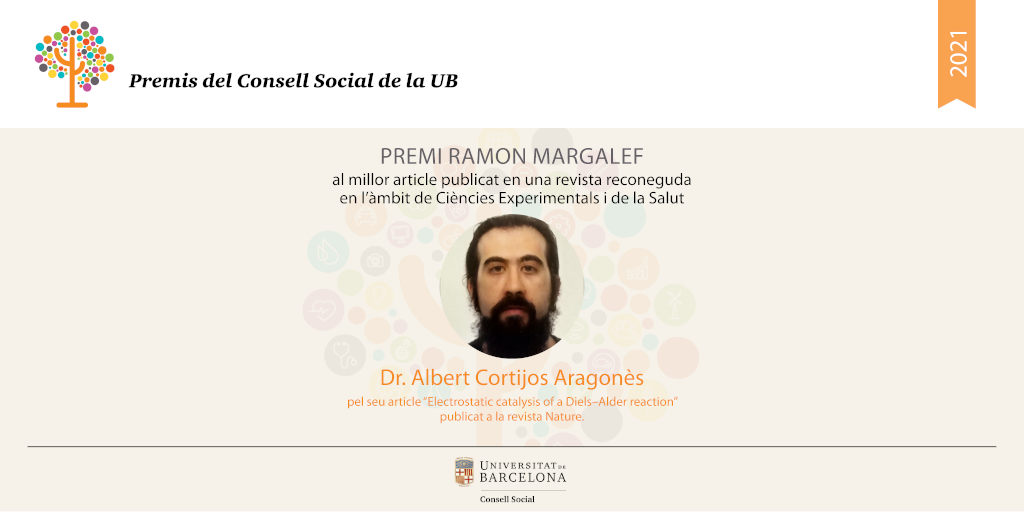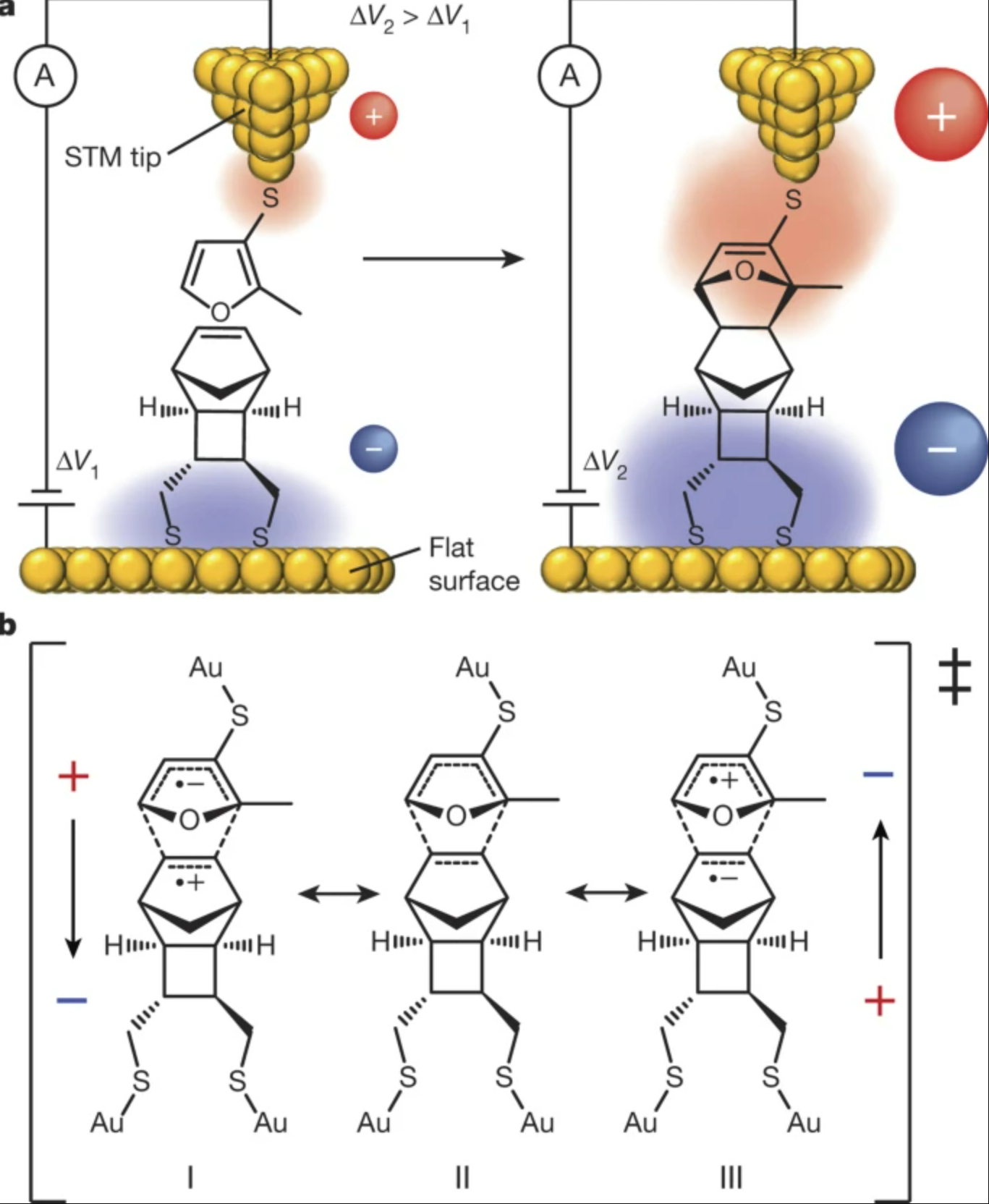Albert Cortijos wins the Ramon Margalef Prize for the best article published in a journal in the field of Experimental and Health Sciences
The article “Electrostatic catalysis of a Diels-Alder reaction“, by Dr. Albert Cortijos, published in Nature, was chosen as the winner of the Ramon Margalef Prize, awarded by the University of Barcelona.

The study was carried out using the classic Diels-Alder reaction, which was facilitated by applying an oriented electrostatic field between two nanoelectrodes containing the reagent molecules. By applying small voltages that generate large electric fields on the molecules involved, the molecules can react as if they were under the effects of conventional chemical catalysts, which is known as electrostatic catalysis. The ability to catalyze chemical reactions is essential, as it speeds up reactions and therefore makes them more prolific and cheaper to use to generate products with multiple applications, and being able to do this with electric fields without conventional chemical catalysts opens the door to reducing costs and above all the environmental impact related to chemical catalysts. This breakthrough opens the door to a faster and more economical production of chemical compounds, derived from the Diels-Alder reaction, which is basic for the production of a wide variety of pharmaceutical products and applied materials.

Electrostatic catalysis is the least developed form of catalysis in synthetic chemistry because the electrostatic effects are strongly directional, and this research overcomes this limitation. In addition to the Diels-Alder reaction, this new nanochemical perspective on chemical synthesis and electrostatic catalysis involves the joining of individual molecules, as if they were Lego figures, to create new molecular structures, and could lead to more efficient methods for the production of new chemical compounds.
